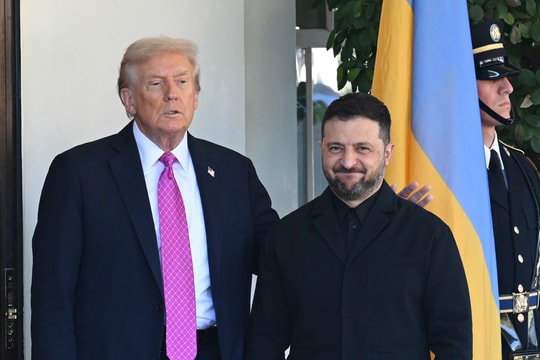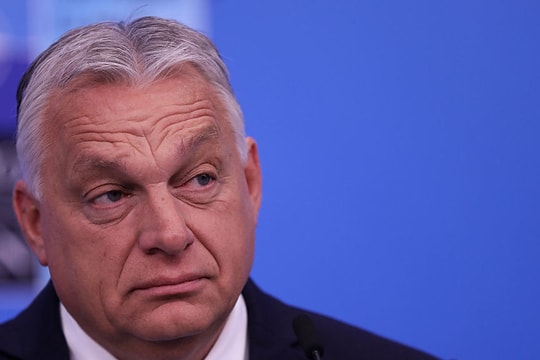IMF warns EU over plans to use Russian assets for Ukraine
The International Monetary Fund has advised the EU to be “extremely cautious” about using frozen Russian assets to finance Ukraine, warning of the risk to the global monetary system.

The International Monetary Fund (IMF) has called for special caution regarding the European Union's (EU) planned "compensation loan" for Ukraine. According to the IMF, any decision to use Russia's sovereign assets must have a "solid legal basis" and must be wary of "any impact on the international monetary system".
Appeal from the IMF
The Kyiv Post (Ukraine) on October 20 noted the EU's proposed compensation loan to convert the frozen sovereign assets of the Russian Central Bank into EU bonds of equivalent value. This loan is secured by assets worth 176 billion euros ($191 billion) held at Euroclear in Belgium.
However, the IMF did not give a specific view on the financing method. Alfred Kammer, director of the IMF's European Department, said the agency could not comment on the financial design of the loan.
"We recommend that when using frozen Russian assets, countries considering doing so should seek a solid legal basis before doing so and also be wary of any impact on the international monetary system," Mr. Kammer stressed during his presentation of the Eurozone Economic Outlook.
While Mr. Kammer did not elaborate on what those specific implications might be, the IMF’s warning sets a high bar for global legitimacy and stability for any action involving frozen state assets.
Legal risks and EU guarantees
The issue of legal and financial risks has been hotly debated by European leaders and experts. Jamison Firestone, a New York lawyer, argues that the EU’s proposed reparations loan to Ukraine poses no additional risk to Euroclear or Belgium. According to this argument, their holdings would simply be converted from cash to EU bonds of equivalent value, thus not adding to the financial or legal burden.
However, Belgian Prime Minister Bart De Wever insisted that the other 26 EU countries should jointly guarantee the loan and share the legal and financial risks, to avoid Belgium being held responsible for repaying Russia if sanctions are lifted and Russia seeks to recoup its assets.
Aside from legal concerns, some have also warned that using Russia's frozen assets could harm the G7 bond market and undermine confidence in Western government bonds.
However, economist Elina Ribakova has called these warnings – including those from Saudi Arabia – “politically motivated market noise”.
Ms. Ribakova commented on the power of the European Central Bank (ECB), asserting that the ECB is "too big and too powerful for any group of investors to resist".
Background of Ukraine's financial needs
The IMF’s caution comes amid a significant fiscal gap facing Ukraine. According to a reliable source speaking to the Kyiv Post, the IMF estimates Ukraine’s fiscal gap for the 2026-2029 period at $65 billion.
Although Ukraine is expected to receive $37.4 billion in international funding over the next two years, this would still create a similar deficit. Sergiy Nikolaychuk, deputy governor of the National Bank of Ukraine (NBU), noted that funding sources have yet to be determined for $12.7 billion in 2026 and $29 billion in 2027.
This urgent need for finance further increases pressure on the EU to find creative solutions, including using Russian assets, despite calls for caution from the IMF.




.png)

